Day-3, 12 June 2009.
Mr. Yow Hon Kong, Republic Polytechnic's (RP) Deputy Director, Office of Information Services. He shared about their IT implementation rationale.
RP started with a stretch goal of having a campus that is entirely paperless: lessons, lecture notes, official documents etc.
Says their initial challenge was to manage administrative overheads with the same operational budget for IT (as other polytechnics); not so much for Problem-based Learning per se.
The technology RP uses isn't new. Says it is "less of a technology implementation and more of a cultural implementation".

RP staff are issued individual laptops. They can even synch their mobile phones with a virtual phone app (VOIP) on their laptops. Phone calls can be made from their laptops over the campus-wide WIFI.
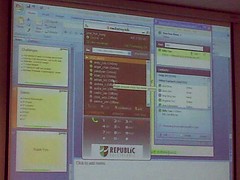
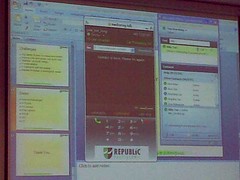
RP uses email accounts as electronic filing cabinets. Each departmental email account is their official filing cabinet.
As far as I understand, they do not employ any taxonomy schemes nor are staff required to index or tag their documents. RP's efiling system is more of a "info dump" and used for unstructured data. No manual indexing.
Their IT team created a email/ e-file search engine that automatically index files/ mails. I asked if they performed document-housekeeping and answer was no.
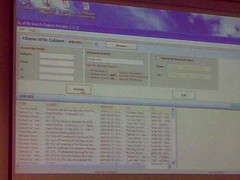
All RP classrooms have wireless projectors (more efficient when you consider each PBL lesson involves multiple group presentations; no need to swap physical cables). They encourage use of MSN and Skype as communication platforms within campus.
RP has three separate data centres. Two are on site (but on different location within the campus) and one is offsite from campus.
On sustaining RP's IT culture: Any staff who joins RP (including temporary facilitators) are given a three-hour hands-on IT training on the very first day. Then there are weekly IT workshops (for staff and students. The campus has an onsite helpdesk and a network and application support team.
Each classroom and various strategic locations have web-cams installed. The cams can be accessed via their Intranet.
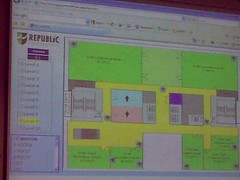

RP uses MS Access to enable staff to generate their reports on demand. They customise a MS Access program that allows users to link to separate divisional databases (to facilitate greater inter-divisional sharing of data). They conduct regular training sessions for their users to be able to generate MS Access queries and be able to generate reports on demand.

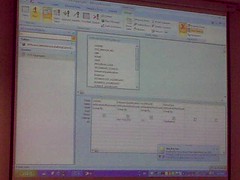
Because of the high importance for tests and exams, for this part RP opted for client-based applications rather than web-based. Client software (developed in-house) are installed on all student and staff laptops. Students would access and complete their tests via the client software.
During tests periods, access to the Internet is blocked (they don't want students to chat with their friends for answers, it seems).
Here's a demonstration of a system they call LEO, for "Learning Environment Online". The system is used by staff and students for time-tabling, class assignments, to access their discussion forums, quizzes, grading and surveys (more about LEO, here).
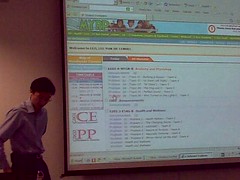
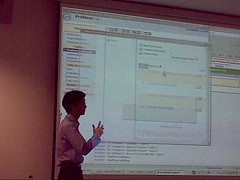
Academic staff are able to access students' Reflective Journal entries, and also assign grades.
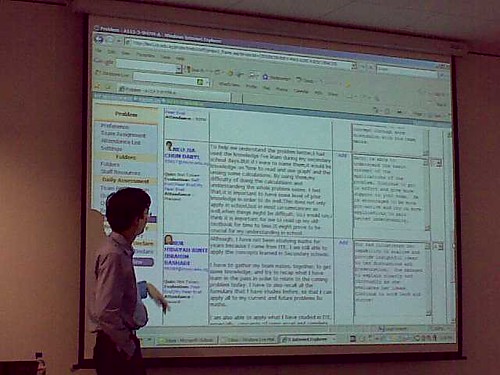

I asked Mr. Yow if they faced situations where there were unauthorised account access/ identity theft among students.
Mr. Yow explained all accounts were required to have their passwords changed every two weeks. Also, students are able to report any issues to the IT support staff immediately. He said those measures helped to reduce the problems.
I inferred that there would be cases of unauthorised access and account break-ins (I suspect due to carelessness by users, i.e. leaving their passwords in plain sight). Inevitable, I suppose.
(Twitter hashtag #pbl09w)
[Next: Part 7]

No comments:
Post a Comment
Join the conversation. Leave a comment :)
Note: only a member of this blog may post a comment.